Dutch exceptionalism: Superior failure in the year of coronavirus

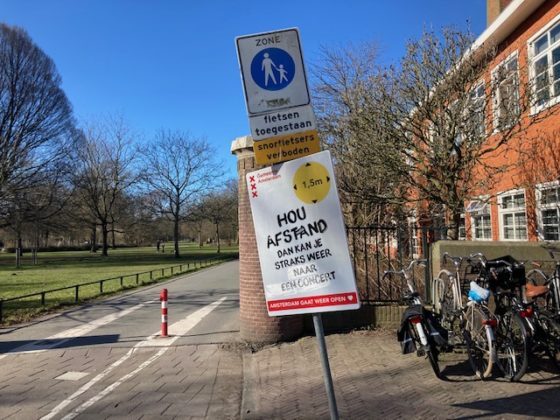
The Dutch are very fond of international comparisons if they come out well, but when it comes to coronavirus, they see the Netherlands’ position as one of ‘superior failure’, writes Ben Coates.
About a year ago, I became a Dutch citizen. In the age of corona, it was a strange experience: I cycled to the city hall through empty streets, with an ambulance siren wailing in the distance, then waited behind a glass screen for a while before being handed an envelope of new identity documents.
There was no ceremony, no handshake with the mayor, no national anthem. The whole experience felt more like collecting a new driving license than a moment of celebration.
Despite the somber mood, however, I was genuinely thrilled to become a Dutchman. I’d moved to the Netherlands about a decade earlier and had quickly built a good life here; learning the Dutch language, having a half-Dutch family, buying a house in the Groene Hart, and writing books about Dutch history and culture.
In that context, I was proud to become a Dutchman; a happy, prosperous citizen of a country I loved and admired. In an odd way, acquiring citizenship also felt like giving a vote of confidence to the country as a whole.
First wave
At the time I went and collected my citizenship papers, the first wave of the Covid-19 pandemic was just unfolding, and this country seemed to be handling things remarkably well. There’d been some early missteps, but overall, even as other countries reported panic-buying of goods like toilet paper, the Dutch responded with typical nuchterheid (sobriety). ‘We can poop for 10 years,’ Mark Rutte said with a smile.
The contrast with my old home country, Britain, which was then still battling its way towards a Brexit deal and changing governments more often than most people change their socks, looked stark. And if there was anywhere in the world which could prevent a ‘first wave’ or a ‘second wave’, then I assumed it was here: the country which practically invented disaster prevention. ‘This might,’ I wrote on my blog, ‘be the Polder Model’s finest hour’.
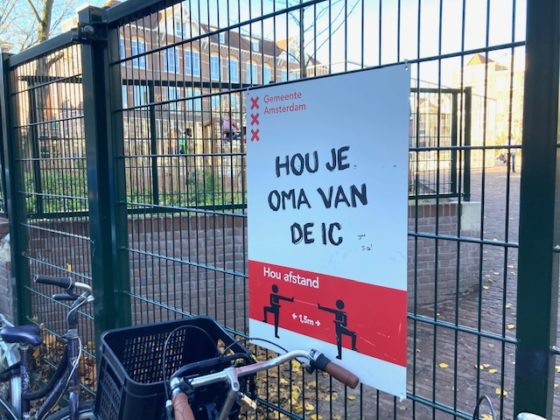
Nearly a year later, I’m sorry to say those words look a little naïve. By some measures the Netherlands has done reasonably well: the total number of deaths caused by corona is (relative to the total population) significantly lower here than in Britain, France or Belgium.
More deaths
However, take a step back and you’ll quickly see that while this country’s performance hasn’t been entirely awful, it’s not been very good either. Adjusted for population, the Netherlands has had significantly more deaths than Germany, and more than twice as many as Denmark. Infections have, at times, been higher than almost anywhere else in Europe. Patients have been airlifted abroad because Dutch hospitals couldn’t cope, and we’ve been among the slowest in Europe to deliver lifesaving vaccines.
The gap between what should have been possible in this country and what’s actually been achieved feels vast. As a new citizen, watching the government flailing to explain why something else has gone wrong, I’m often reminded of what my mother used to say to me when I misbehaved as a teenager: ‘I’m not angry. I’m just very, very disappointed’.
As a sort-of newcomer, I’ve also realized that some of the things I originally admired about this country have turned out to be critical weaknesses. When I arrived in the Netherlands years ago, after working as a political adviser in London, I remember being amazed by how grown-up Dutch politics seemed, with its constant emphasis on evidence and compromise.
If Westminster felt like a boxing ring where everyone was constantly furious with one another, the Hague was more like a friendly club or university, filled with kind, clever people who worked together to get things done. Things moved slowly, but when living below sea level, it paid to not make any sudden moves.
Happy society
In normal times, this difference-splitting often worked fantastically well, helping the Netherlands become one of the wealthiest, safest and happiest societies in the world. Yet it’s become clear that during a crisis, these same mechanisms can lead to paralysis.
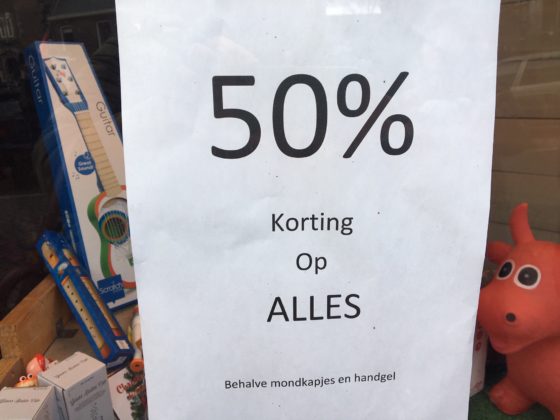
One example of this was the infamous debate over masks. The WHO recommended that masks should be worn in confined public spaces on 5th June. The UK made masks mandatory on public transport on 15th June, and in shops from 24th July. France made masks mandatory in shops in late July, and even McDonald’s in the US made them mandatory for customers from 1st August. In the sensible Netherlands, however, the simple act of wearing a mask somehow remained as controversial as Zwarte Piet.
Faced with a situation where there was an urgent need to do unpopular things, the authorities wasted months dithering and debating. Mayors told people to wear masks, the RIVM told them not to bother, and ministers seemed unable to decide either way.
As a result of all this, masks didn’t become compulsory in public until 1st December – four months after McDonalds – by which point nearly ten thousand Dutch people had died, including (presumably) some who might have lived if mask-wearing had been routine.
While leaders like Joe Biden, Angela Merkel and Boris Johnson are rarely seen without a mask, we almost never see Rutte with one. And it’s not just masks that came late. Other sensible policies – testing for children with symptoms, discouraging foreign holidays, making more space inside shops – were introduced far later than they should have been.
Corona app
Hugo de Jonge’s famous corona app was announced in the spring but not launched until months later, by which time Germany’s version had almost as many users as the Netherlands has people.
Every week seems to bring another new example of government by hesitation: a promise that the OMT will think about something, that the RIVM will review data, that the cabinet will have a meeting to decide whether to think about potentially changing the policy in three weeks’ time. Faced with a deadly crisis, the Dutch state seems like an oil tanker floating in erwtensoep: incapable of changing direction fast.
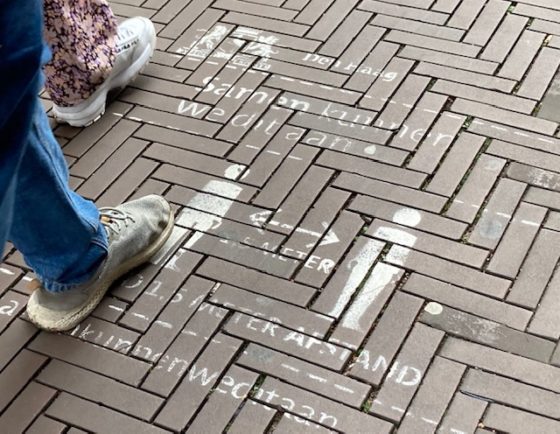
Another surprise has been the odd arrogance which permeates the Netherlands’ response. We hear a lot about American exceptionalism – the idea, proposed by Alexis de Tocqueville and others, that Americans think their country is superior to others, and uniquely qualified to lead the world.
Yet it seems to me that the Dutch also exhibit a similar trait; breezily assuming that our way is best, and that other countries only do badly because they’re too lazy or too disorganized to run things properly. (Just look, for example, at Jeroen Dijsselbloem’s notorious claim that southern European countries ‘spend all the money on spirits and women’, or Rutte saying England had ‘collapsed politically, monetarily, constitutionally and economically’.
Sensible
During the pandemic, we’ve consistently heard that the Netherlands doesn’t need hard lockdowns like other countries, because we’re more sensible here. Asked in March 2020 why he wasn’t locking down harder, Rutte replied: ‘That… does not fit with the mature democratic proud Netherlands… with a mature democratic country’.
Over the following months the message remained largely the same: ‘We are grown-up people’, and the situation here was not ‘like in other countries’.[Even the name of the government’s flagship policy spoke volumes: ‘Intelligent Lockdown’, with its clear implication that everyone else’s version was stupid.
Politically, this rhetoric was understandable: leaders are unlikely to lose votes by telling the public they’re clever. But the problem is that telling people they are at lower risk can encourage risky behaviour. For much of last summer, many people here acted as if there was a special Dutch variant of coronavirus which somehow made them immune, and continued doing things which other Europeans considered impossible: going to gyms, sitting in busy restaurants, having parties in crowded living rooms and flying abroad on holiday; even as other countries locked down.
Testing
According to RIVM surveys, only half of Dutch stay home if they have symptoms and only half get tested. Nuchterheid often looks more like roekeloosheid (recklessness). By mid-December, the Netherlands had one of the highest rates of infection in Europe, the concept of ‘intelligent lockdown’ had been quietly dropped, and we were heading into a real lockdown instead. ‘Grown-up’, ‘stubborn’ Nederlanders turned out to be just as vulnerable as everyone else.
Yet despite this, I’ve lost track of the number of times someone has said to me something like: ‘It’s terrible, how things are going in your country’, meaning Britain – even at times when the Netherlands has actually been doing worse. Other countries’ failures prove we’re right, but their successes are largely ignored. I can almost imagine the guys in my favorite bar in Rotterdam shouting: ‘Yes, Belgium’s infections are lower, but have you seen the state of their roads?!’
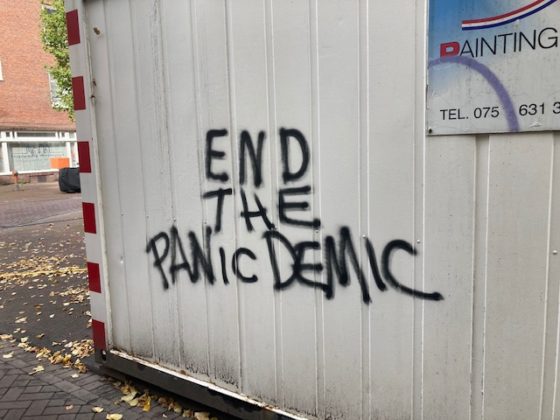
More recently, we’ve also seen exceptionalist attitudes play out with respect to vaccines. If there was any country which should have been able to get vaccination right, it’s this one: small and densely populated, richer than Germany or Saudi Arabia, with excellent transport links and almost everyone living close to a family doctor or hospital.
Vaccination problems
But despite these advantages, our performance has been lamentable: as of early February, the total number of Dutch people who’d received a vaccine was far less than the number of British people getting vaccinated every day. Thousands have died since the first vaccines got regulatory approval, and it’s clear that normal life won’t resume until most people have been vaccinated.
However, many people still seem to think long delays don’t matter as long as we get there in the end – which is a bit like saying that if your house is on fire, it makes no difference whether the fireman comes today or in September.
While we seem to like international comparisons when they make us look good (GDP growth, debt, deficits), when they make us look bad (infection rates, vaccinations) they’re derided (‘this isn’t a competition!’)
Rather than being blunt about failures, people suggest it’s others who have the problem and the Netherlands getting things right. ‘We choose not to have a symbolic [early] vaccination’, De Jonge said in December. ‘It’s not responsible to do it sooner’. In other words: if things go slowly here, it’s because others are careless, not because we’ve done badly. Dutch failure is thus presented as proof of Dutch superiority. George Orwell would be proud.
Historical roots
Thinking about what causes such attitudes, you could look for deep historical roots: old religious habits of judging bad behavior; the ‘VOC mentaliteit‘ which rests on the assumption that clever Dutchmen know how to run the world. However, it seems to me that the fumbled response to corona can again be blamed partly on the political system.
In places like England or the US, there’s a clear divide between (roughly speaking) one major governing party and one major opposition party. If the former messes something up, the latter will criticize them intensely. In the Netherlands, however, some of Rutte’s biggest rivals are in his cabinet.
When failures do happen, the fiercest scrutiny often comes not from the mainstream but from stubborn individuals like Peter Omtzigt (CDA) – but if you vote for those critics, you might just help their parties form another coalition with Rutte at the top.
Attitudes have hardened in recent years, and there are plenty of populist politicians who could start a fight in an empty room. But the political culture remains remarkably forgiving of failure. Dutch people have a reputation for directness, but when things go wrong or people behave badly (holding a wedding party in defiance of lockdown, for example) the instinct is still usually to say: ‘Let’s not be mean, it is what it is, we’re all friends here!’
Blame game
With a four-party coalition, lines of accountability are blurred: when the government makes mistakes, who can say who’s to blame? Like a gang of kids caught breaking a window, coalition parties can all just point at each other and shout: ‘It wasn’t me, it was them!’

The media also plays a role. Many Dutch journalists do amazing work, but there’s also sometimes an unwillingness to ask hard questions. Is it really good for the country that if the prime minister gives a detailed presentation about thousands of people dying and vaccines going undelivered, the first question is always something like: ‘How will this affect our holiday plans?’
After a grim start to 2021, attitudes do seem to have shifted now. Everyone’s stressed and bored, and patience is wearing thin. The government’s being criticized harshly, and even Rutte has criticized ‘stubborn’ Nederlanders for not following the rules.
However, looking at surveys across the past year, the prevailing public mood seems to be benign acceptance. Surveys conducted by I&O show that support for the cabinet’s approach to corona fell between March 2020 and May 2020, but then remained stable for months afterwards.
In May 2020, 75% of Dutch people said they largely supported the government’s corona policies; by January 2021, it was still 72% – higher than it had been in October, before the last wave of infections. In January, 58% of Dutch people said they were satisfied with the country’s vaccination campaign, compared with only 31% of French people.
Election
Political polls demonstrate similar passivity. After a year of corona, around fifteen thousand deaths, an economic crisis, the toeslagenaffaire, riots and the vaccination debacle, the VVD is on course to win twice as many seats as any other party. Whichever party you support, that juxtaposition is remarkable. Based on current trends, Rutte could ban bitterballen and sell parliament to the Germans and still win more votes than before.
A year on from my low-key citizenship ‘ceremony’, I’m still thrilled to be a Dutchman, and adore many things about this country: our people, our scenery, our history, the fact that it’s fine to eat cheese for breakfast. There are some things about the corona response which I admire, including the heroic way many public services have kept going.
It’s possible that in a few years’ time, we’ll look back and think we didn’t do that badly overall. But it’s also undeniable that in my first year as a Dutchman, my view of the Netherlands has changed in ways which I never imagined possible.
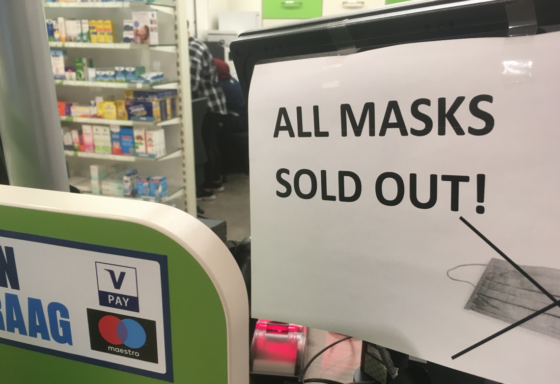
Somewhere I thought was an island of stability and efficiency has botched things which should have been straightforward. In denial about the scale of the problem, many people have behaved carelessly, or just shrugged passively as things get worse.
Past fantasies
And the system itself seems to be creaking. As a Brit, after 2016 I grew used to hearing arguments that Britain is a country which failed to find a convincing role after the collapse of its empire and has been living off past glories and fantasies for too long.
Now, as a Dutchman, that seems like a cautionary tale. It’s hard not to feel troubled by the way we whitewash over our failures and cling to the past glories of the Polder Model, Golden Age and Delta Works. As I write this, my new Dutch passport sits in the drawer of my desk, uncreased and still waiting to be used.
When I do get to travel again, if someone asks where I’m from, I’ll be truly proud to say: ‘I’m a Dutchman, from a wonderful country called the Netherlands’. But if they ask how our country is run, I’ll say: ‘We do lots of things well, but we get some things badly wrong.’
Ben Coates is the author of the books ‘Why the Dutch are Different: A Journey into the Hidden Heart of the Netherlands’ and ‘The Rhine: Following Europe’s Greatest River from Amsterdam to the Alps’. Find out more via his website.
This article was first published in Dutch, in De Groene.
Thank you for donating to DutchNews.nl.
We could not provide the Dutch News service, and keep it free of charge, without the generous support of our readers. Your donations allow us to report on issues you tell us matter, and provide you with a summary of the most important Dutch news each day.
Make a donation